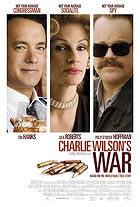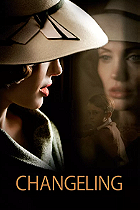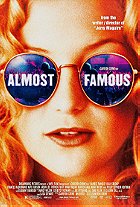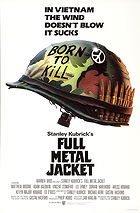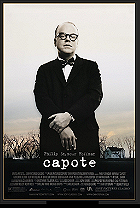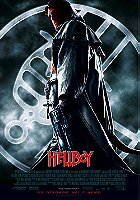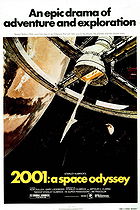A miserable conman and his partner pose as Santa and his Little Helper to rob department stores on Christmas Eve. But they run into problems when the conman befriends a troubled kid, and the security boss discovers the plot.
Billy Bob Thornton: Willie
Let's begin by saying Bad Santa is like being whipped around in a paper hurricane of chaos and anarchy. Like great and rare comedies in the genre, it is without borders or boundaries.
Typically, around Christmas you will find yourself watching a generic, feel-good, moralistic Christmas caper, Bad Santa is the Adult version of the season. For those of you who are fed-up with dull repetitive antics, Bad Santa is the perfect accolade and a perfect choice, as it is an entirely altered perception of the Holiday.
It isn't It's a Wonderful Life, nor is it Miracle on 34th Street, or even playful Home Alone or playful Jingle All The Way, yet it still incorporates features from all yet in a darker vision of black comedy proportions.
Plus who isn't fed up with alot of Scrooge-type Christmas picks where the main character does not initially believe or is too caught up to celebrate, and in the end he's all celebrating, he's become a kind hearted role model for your children. Bad Santa is a welcome breath of originality. Many people have criticized it because they were expecting the usual boring sugarcoated winter holiday flick and thus usage of bad language may have come across as a huge violation. Well, Bad Santa certainly isn't designed for the kids(But you know children these days, most won't be shocked.). While the swearing and bitching provide humour, they also make the characters more realistic.
Sue: I've always had a thing for Santa Claus. In case you didn't notice. It's like some deep-seeded childhood thing.
Willie: So is my thing for tits.
When a story begins with a guy in a Santa outfit, sitting at a bar, drinking his life away you know you are not watching your usual sloppy Christmas feel good gamble. From the crude opening narration, to the wonderfully explosive finale, Bad Santa is bad taste of comedic genius. Billy Bob Thornton performs as a crude, dishonest cynic who hates everyone and everything. Bringing comedic energy and offensive characteristics to his character he impeccably balances the grumpy scrooge of Christmas with heart.
Bad Santa, in spite of the language and sexual content is kind of a sweet movie sub-consciously. Zwigoff does a great job as the director, making not just a brainless tasteless comedy, dealing with themes quite professionally. I laughed out loud at the dialogues and one-liners and in the end I was left with a big wide grin upon my visage. Ficarra and Requa's writing is very good. We're provided with 90 minutes of wholesome entertainment. Even though the protagonist Willie, isn't likable, you can't help but laugh at this guy and eventually you end up liking him.
Only Billy Bob Thornton can excellently pull off 'Bad Santa'. I couldn't picture anyone else that could suit the part more.
It's good to finally see him in a more significant role that has more scope for his talent to shine. Child actor Brett Kelly is cast well as The Kid. He's not the usual filmy cute kid who gets on your nerves and reminds you why you hate child actors. Kelly plays his part naturally and is very likable. The sizzling Lauren Graham brings out the other side (a much darker one) of Lorelai Gilmore (of Gilmore Girls fame). She skillfully portrays Sue's weirdness, sensuality and sweetness. Lauren Tom is funny as Marcus's bitchy girlfriend. The late John Ritter has some of the funniest lines and he delivers them with complete ease. Bernie Mac, however, is the least funniest of them all. It's not his acting but more the comedy of the character that isn't enough. Otherwise he's quite adequate.
Kid: You are really Santa, right?
Willie: No, I'm an accountant. I wear this fucking thing as a fashion statement, alright?
Basically Bad Santa is one of the darkest funniest Christmas films, one that has a strong repeat value as it still makes me laugh in repeat viewing and sometimes when I think of the situations in the film, I at least end up with a positive result.
It is not a case of whether you are a lover of Christmas or not, as Bad Santa is continually entertaining and at times, even charming. Through its witty script, fuelled by grumpy, drunken humour it is almost impossible not to become entranced by the inconsiderate lines of raucous profanity. Director, Terry Zwigoff proves his quirky talent once again, after the success of 2000's Ghost World. Bad Santa is black comedic bliss and a highly recommended comedy for fans of something a little more extreme than the average, feel good Hollywood efforts out there.
''I've been to prison once, I've been married - twice. I was once drafted by Lyndon Johnson and had to live in shit-ass Mexico for 21/2 years for no reason. I've had my eye socket punched in, a kidney taken out and I got a bone-chip in my ankle that's never gonna heal. I've seen some pretty shitty situations in my life, but nothing has ever sucked more ass than this!''
 Login
Login
 Home
Home 24 Lists
24 Lists 448 Reviews
448 Reviews Collections
Collections
 0 comments,
0 comments, 

